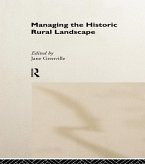Richmond—Capital of the Cavaliers—a city that is mellow and yet modern, where the rustle of the past may still be heard amid the bustle of the present.
To appreciate Richmond one must, before all else, remember that this old town has roots planted deep in the history of our country. Richmond was founded in 1737 by William Byrd II, of Westover on the James, forefather of two of Virginia’s illustrious sons of today, Admiral Richard Evelyn Byrd and Senator Harry Flood Byrd. But even before Father Byrd laid off his lots and established Richmond, this site at the falls of the James River had held a certain degree of importance. Just a few weeks after the Virginia settlers landed at Jamestown on May 13, 1607, to found the first permanent English settlement in America, Captain Newport pushed off up the James to find the route to the gold of the Indies. The barrier of rocks, known as the falls of the James, must have been an unwelcome sight to the eyes of that little band of intrepid explorers as it shattered their dream of easy passage to their expected El Dorado. Captain Newport, however, was the first of the Virginians to believe that no hoped-for golden future should stop a man from doing the sensible, practical things of the moment. Before very long, Captain Francis West had established a frontier post at the point where the falls interrupted further navigation of the river. It is hard to realize that Richmond was once on the western frontier of our country, but such was the case until about 1660, when settlers began that westward push that only ended when the Pacific was reached.
To appreciate Richmond one must, before all else, remember that this old town has roots planted deep in the history of our country. Richmond was founded in 1737 by William Byrd II, of Westover on the James, forefather of two of Virginia’s illustrious sons of today, Admiral Richard Evelyn Byrd and Senator Harry Flood Byrd. But even before Father Byrd laid off his lots and established Richmond, this site at the falls of the James River had held a certain degree of importance. Just a few weeks after the Virginia settlers landed at Jamestown on May 13, 1607, to found the first permanent English settlement in America, Captain Newport pushed off up the James to find the route to the gold of the Indies. The barrier of rocks, known as the falls of the James, must have been an unwelcome sight to the eyes of that little band of intrepid explorers as it shattered their dream of easy passage to their expected El Dorado. Captain Newport, however, was the first of the Virginians to believe that no hoped-for golden future should stop a man from doing the sensible, practical things of the moment. Before very long, Captain Francis West had established a frontier post at the point where the falls interrupted further navigation of the river. It is hard to realize that Richmond was once on the western frontier of our country, but such was the case until about 1660, when settlers began that westward push that only ended when the Pacific was reached.









